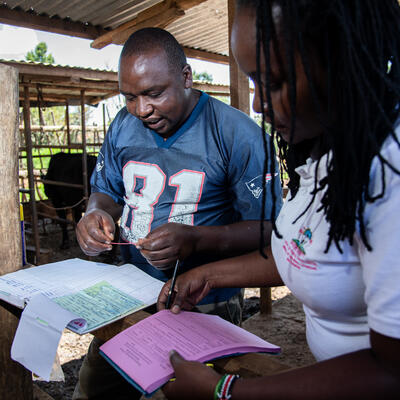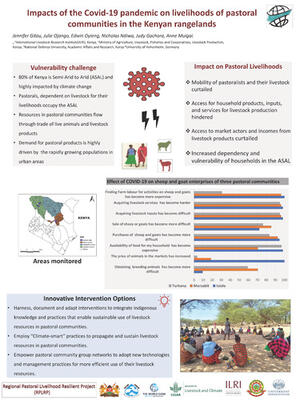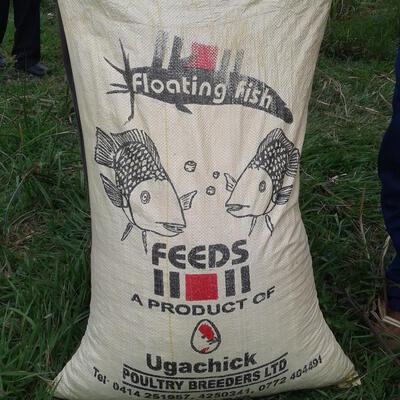
Partners review progress of implementing Bihar’s livestock master plan
Livestock sector stakeholders and partners in Bihar, India, met recently to review the implementation of the state’s livestock master plan three years after its launch. The 8 October 2022 meeting at the Bihar Animal Sciences University (BASU) in the state capital, Patna, brought together close to 50 participants from the Department of Animal and Fisheries Resources (AFRD), BASU, the Government of Bihar, and the International Livestock Research Institute (ILRI).
Launched in January 2019, Bihar’s LMP was the first for an Indian state. The review assessed how the master plan has been received and implemented by target stakeholders, the achievements so far, the challenges experienced and ways of addressing them.
The LMP is a series of five-year development investment plans or ‘roadmaps’ intended to complement and help implement Bihar’s agricultural roadmap. It was developed to augment the production and productivity of the livestock sector in the state, and to improve the livelihoods of livestock farmers in the five-year period of 2018-19 to 2022-2023.
Reflections from experts
Among the key findings of the review, said Habibar Rahman, ILRI’s regional representative for South Asia, was that ‘lessons from Bihar LMP’s implementation should be used to develop Bihar’s livestock roadmap for the next five years.’ This will continue the progress from the LMP’s use to further improve livestock management and economic development in the state. ILRI’s program leader for Policies, Institutions and Livelihoods, Isabelle Baltenweck, said the LMP’s has played a key role in guiding value chain analysis and ensuring sustainable livestock production for small-scale and marginal farmers.
Rameshwar Singh, vice chancellor of BASU, called for ‘greater investment and allocation of funds in the livestock sector to raise the incomes, livelihood options and nutritional security of the poor livestock farmers in the state.’ He added that the university was willing to offer technical support for the establishment of several research and training centres, in line with recommendations from the LMP.
Both Ashutosh Upadhyaya, director of the Indian Council of Agricultural Research's Research Complex for Eastern Region (ICAR-RCER), and Saravana Kumar, AFRD secretary, remarked on the importance of research in strengthening gains made in the livestock industry. Upadhyaya said digitizing Bihar’s livestock records would improve the efficiency of programs and formulation of livestock sector policies. He urged ILRI to assess the constraints to livestock development in Bihar to help the state improve its strategies for the sector.
He added that ‘the LMP supplements the wider agricultural roadmap and highlights important areas of focus such as pig development, which are missing in the roadmap. ‘The current agricultural roadmap will be used to monitor the LMP, and our findings will inform Bihar’s fourth agricultural roadmap,’ the AFRD secretary said.
Demand for animal source foods continues to outpace supply
A technical session and a panel discussion at the meeting, both co-chaired by Saravana Kumar and Isabelle Baltenweck, revealed a huge disparity between supply and demand in the dairy, meat and poultry sub-sectors. Sirak Bahta, senior scientist at ILRI, presented the lessons from the development and implementation of the LMP in Bihar. He said the results revealed a large disparity between supply and demand in nearly all the sectors and called for more investment to bridge the animal-source food supply gap in the near future.
Vijay Prakash Meena, director of Animal Husbandry in the Government of Bihar, led a review of the status of dairy, meat and egg production in the state. He noted that despite achievements in meeting the LMP targets for various sub-sectors, inadequate support from banks and the impact of COVID-19 had limited the extent of success in dairy and poultry production. Rajesh Kumar, the director of the dairy sector in the state government, said the increasing number of dairy cooperatives in Bihar had achieved some of the LMP’s goals.
Secretary Kumar said the Bihar government was working towards full implementation of the LMP. ‘We are strengthening our engagement with existing partners and drawing lessons from countries that have rolled out livestock master plans,’ he said. The Department of Animal and Fisheries Resources is also exploring ways of working with training centres known as Pashu Vigyan Kendra, and agricultural extension centres commonly referred to as Krishi Vigyan Kendra, and improving the welfare of staff working in the livestock sector to ensure success.
Recommendations to catalyze Bihar's livestock master plan
The reviewers proposed the following activities to ensure full adoption of the plan:
- The AFRD should collaborate with ILRI and other stakeholders in preparing Bihar’s fourth agricultural roadmap, which should incorporate some of the LMP’s goals.
- Value chain management and gender research should be strengthened and evidence generated of their impacts in the livestock sector.
- LMP cells should be established alongside those of the agricultural roadmap for the masterplan to be implemented and monitored in the state.
- Data should be collected regularly to better understand aspects such as the cost of production, milk prices, disease status and adherence to the breeding policy.
- LMP implementation should target more stakeholders, including private sector actors.
Supplementary communication materials based on the LMP should be produced to raise awareness of the master plan among stakeholders.
The Bihar livestock master plan was developed by the Government of Bihar and ILRI based on the Bihar Livestock Sector Analysis (LSA), with was also produced by the state government and ILRI. The work was supported by the Bill & Melinda Gates Foundation.


Read more about the Bihar LMP here and the Bihar Livestock Sector Analysis (LSA) here.
(The post was edited by Chi Nguyen, regional communications officer with ILRI in East and Southeast Asia; Paul Karaimu, communications officer, ILRI; Judy Kimani, communications officer, PIL, ILRI; and Terry Mwenda, communications officer, publishing and editing, ILRI)


















